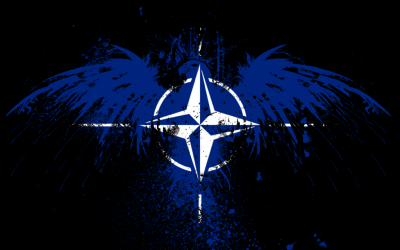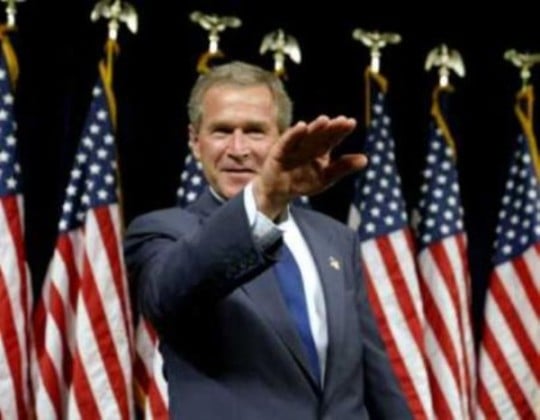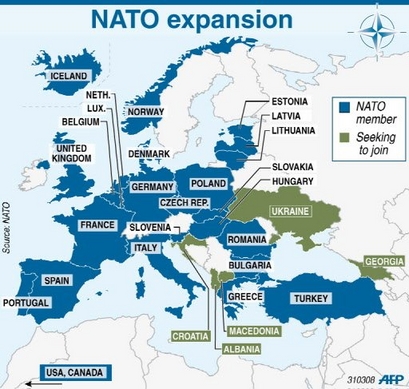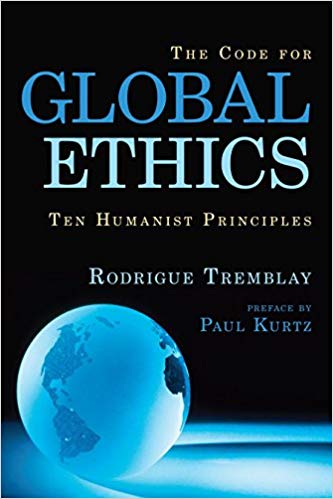Why Not Simply Abolish NATO?
Relic of the Cold War

This incisive and timely article by award-winning author Professor Rodrigue Tremblay was publish by Global Research fourteen years ago in August 2008.
Let us build a Consensus for Worldwide Peace: Abolish NATO.
***
[NATO’s goal is] “to keep the Russians out, the Americans in, and the Germans down.” Lord Ismay, first NATO Secretary-General
“We should immediately call a meeting of the North Atlantic Council to assess Georgia’s security and review measures NATO can take to contribute to stabilizing this very dangerous situation.” Sen. John McCain, (August 8, 2008)
“If we would have preemptively worked with Russia, with Georgia, making sure that NATO had the kind of ability and the presence and the engagement, we could have perhaps avoided this” [The invasion of S. Ossetia by Georgia and the subsequent Russian response]. Tom Daschle, former Senate Majority Leader and adviser to Sen. Barack Obama, (August 17, 2008)
“Of all the enemies to public liberty, war is perhaps the most to be dreaded because it comprises and develops the germ of every other.” James Madison (1751-1836), fourth American President
*
The North Atlantic Treaty Organization (NATO) is a relic of the Cold War. It was created on April 4, 1949 as a defensive alliance of Western Europe countries plus Canada and the United States to protect the former countries from encroachments by the Soviet Union.
But since 1991, the Soviet empire no longer exists and Russia has been cooperating economically with Western European countries, supplying them with gas and oil, and all types of commodities. This has increased European economic interdependence and thus greatly reduced the need for such a defensive military alliance above and beyond European countries’ own self-defense military system.
But the U.S. government does not see things that way. It would prefer keeping its role as Europe’s patronizing protector and as the world’s sole superpower. NATO is a convenient tool to that effect. But maybe the world should be worried about those who go around the planet with a can of gasoline in one hand and a box of matches in the other, pretending to sell fire insurance.
As of now, it is a fact that the U.S. government and the American foreign affairs nomenklatura see NATO as an important tool of American foreign policy of intervention around the world. Since many American politicians do not anymore support de facto the United Nations as the supreme international organization devoted to maintaining peace in the world, a U.S.-controlled NATO would seem to be, in their eyes, a most attractive substitute to the United Nations for providing a legal front for their otherwise illegal offensive military undertakings around the world. They prefer to control totally a smaller organization such as NATO, even though it has become a redundant institution, than to have to make compromises at the U.N., where the U.S nevertheless has one of the five vetoes on the Security Council.
That is the strong rationale behind the proposals to reshape, reorient and enlarge NATO, in order to transform it into a flexible tool of American foreign policy. This is another demonstration that redundant institutions have a life of their own. Indeed, when the purpose for which they have been initially established no longer exists, new purposes are invented to keep them going.
Regarding NATO, the plan is to turn it into an aggrandized offensive imperial U.S.-dominated political and military alliance against the rest of the world. According to plan, NATO would be enlarged in the Central-Eastern European region to include not only most of the former members of the Warsaw Pact (Poland, the Czech Republic, Slovakia, Bulgaria, Romania, Albania and Hungary) and many of the former republics of the Soviet Union (Estonia, Lithuania, Latvia, Georgia and Ukraine), but also in Asia to include Japan, Australia, New Zealand, South Korea, and possibly admit Israel in the Middle East. Today the initially 12-member NATO has mushroomed into a 26-member organization. In the future, if the U.S. has its way, NATO could be a 40-member organization.
In the United States, both the Republicans and the Democrats see the old NATO transformed into this new offensive military alliance as a good (neocon) idea to promote American interests around the world, as well as those of its close allies, such as Israel. It is not only an idea actively promoted by the neocon Bush-Cheney administration, but also by the neoconservative advisers to both 2008 American presidential candidates, Sen. John McCain and Sen. Barack Obama. Indeed, both 2008 presidential candidates are enthusiastic military interventionists, and this is essentially because both rely on advisers originating from the same neocon camp.
 For instance, the rush with which the Bush-Cheney recklessly promised NATO membership to the former Soviet republic of Georgia and American military support and supply is a good example of how NATO is viewed in Washington D.C. by both main American political parties. For one, Republican presidential candidate John McCain envisages a new world order built around a neocon-inspired “League of Democracies” that would de facto replace the United Nations and through which the United States would rule the world.
For instance, the rush with which the Bush-Cheney recklessly promised NATO membership to the former Soviet republic of Georgia and American military support and supply is a good example of how NATO is viewed in Washington D.C. by both main American political parties. For one, Republican presidential candidate John McCain envisages a new world order built around a neocon-inspired “League of Democracies” that would de facto replace the United Nations and through which the United States would rule the world.
Secondly, Sen. Barack Obama’s position [August 2008] is not that far from Sen. McCain’s foreign policy proposals. Indeed, Sen. Obama advocates the use of U.S. military force and multilateral military interventions in regional crises, for “humanitarian purposes”, even if by so doing, the United Nations must be bypassed. Therefore, if he ever gains power, it is a safe bet that Sen. Obama would not have any qualms about adopting Sen. McCain’s view of the world. For example, both presidential candidates would probably support the removal of the no “first strike” clause from the NATO convention. It can be taken for granted that with either politician in the White House, the world would be a less lawful and a less safe place, and would not be more advanced than it has become under the lawless Bush-Cheney administration.
However, it is difficult to see how this new offensive role for NATO would be in the interests of European countries or of Canada. Western Europe in particular has everything to fear from a resurgence of the Cold War with Russia, and possibly with China. The transformation of NATO from a North Atlantic defensive military organization into a U.S.-led worldwide offensive military organization is going to have profound international geopolitical consequences around the world, but especially for Europe. Europe has a strong economic attraction for Russia. Then why embark upon the aggressive Bush-Cheney administration’s policy of encircling Russia militarily by expanding NATO right up to Russia’s doorstep and by placing a missile shields right next to Russia? Wouldn’t it be better for Europe to develop harmonious economic and political relations with Russia? Why prepare the next war?
And as for Canada, under the neocon minority Harper government, it has sadly become a de facto American colony as far as foreign affairs are concerned, and this, without any serious debate or referendum to that effect within Canada. The last thing Canada needs is to go further on that mined road.
In conclusion, it would seem that the humanist idea of having peace, free trade and international law as the foundations of the world order is being cast aside in favor of a return to great power politics and gunboat diplomacy. This is a 100-year setback.
It is a shame.
Rodrigue Tremblay is professor emeritus of economics at the University of Montreal and can be reached at [email protected] He is a Research Associate of the Centre for Research on Globalization
He is the author of the book ‘The New American Empire’ and the Code for Global Ethics,
Author’s Website: www.thenewamericanempire.com/
The Code for Global Ethics: Ten Humanist Principles
by Rodrigue Tremblay
Humanists have long contended that morality is a strictly human concern and should be independent of religious creeds and dogma.
This principle was clearly articulated in the two Humanist Manifestos issued in the mid-twentieth century and in Humanist Manifesto 2000, which appeared at the beginning of the twenty-first century. Now this code for global ethics further elaborates ten humanist principles designed for a world community that is growing ever closer together.
Click book cover for more details. Order directly from Amazon




